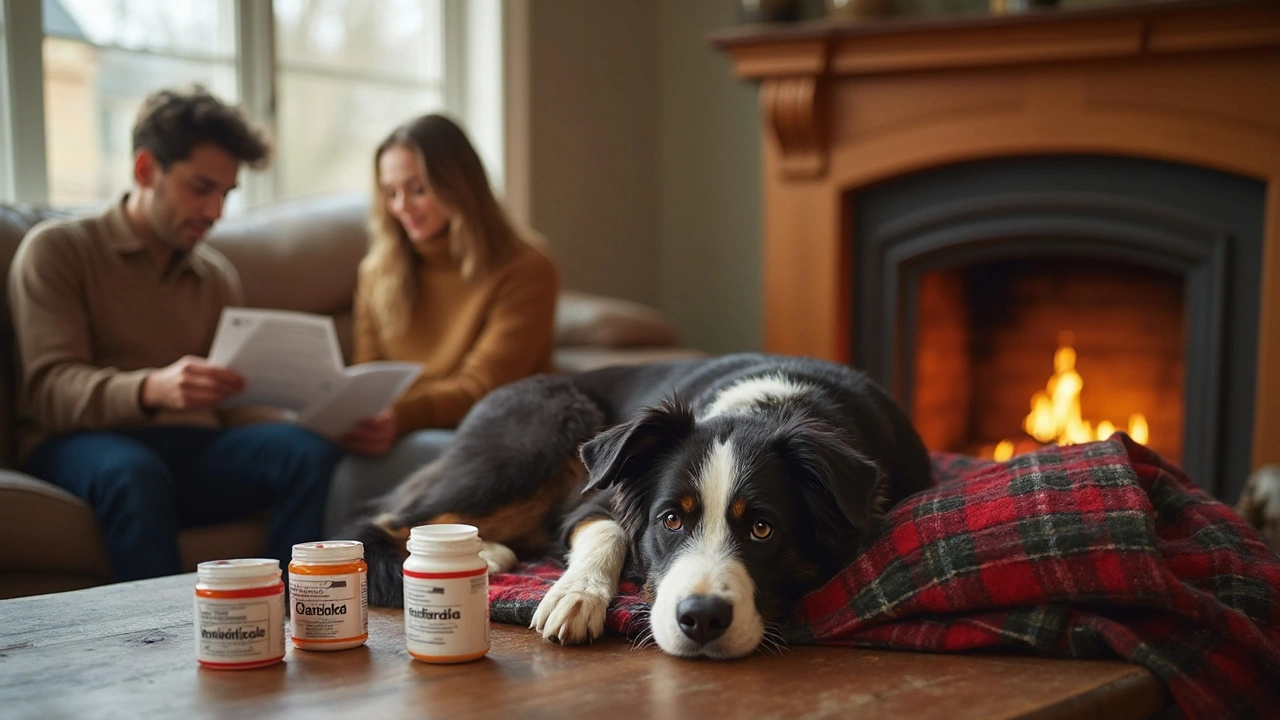Fenbendazole for dogs — what it treats and how to use it safely
If your dog has worms, fenbendazole is one of the common medicines vets prescribe. You’ll find it under brand names like Panacur or as a generic. It fights roundworms, hookworms, some tapeworms, and Giardia depending on dose and course length. People like it because it’s usually well tolerated and works on a range of parasites.
How fenbendazole is used
Fenbendazole comes as tablets, granules, and liquid. The usual approach is weight-based dosing. A common dose is 50 mg per kg of body weight once daily for several days — for many infections vets use 3 to 5 days. For stubborn infections like Giardia or certain tapeworms, a vet may extend the course or combine drugs. Some parasites (like the common flea-transmitted tapeworm Dipylidium caninum) need praziquantel instead, so don’t assume one drug fixes everything.
Before treating, get a fecal test if you can. A stool exam tells which parasite is present and helps the vet pick the right dose and length of treatment. After treatment, a repeat fecal test 2–4 weeks later confirms the infection is cleared.
Safety, side effects, and practical tips
Fenbendazole is generally safe for most dogs. Mild side effects include vomiting, loose stool, or a bit of sleepiness. Serious reactions are rare but call your vet if you see severe vomiting, high fever, or trouble breathing.
Practical tips: weigh your dog or use a vet’s weight so you give the right dose; measure liquid with a syringe; give the full course — stopping early can leave eggs behind; if you miss a dose, give it as soon as you remember unless it’s almost time for the next one, then skip the missed dose and continue.
If your dog is pregnant, nursing, very young, or has other health issues, check with your vet first. Also tell your vet about any other drugs your dog is taking — interactions are uncommon but possible.
You might see online stories about fenbendazole being used for cancer in pets. That’s based on very limited evidence and anecdote. Don’t replace vet-recommended cancer care with off-label use. Discuss any experimental ideas with your vet so treatments are safe and coordinated.
Finally, prevention matters. Keep up with regular fecal checks, pick up feces promptly, control fleas, and follow a deworming schedule your vet recommends. Cleaning bedding and shared areas helps stop reinfection.
If you’re unsure what to do next, call your vet. A quick fecal test and a short, correct course of fenbendazole will often fix common worm problems and keep your dog healthy.

